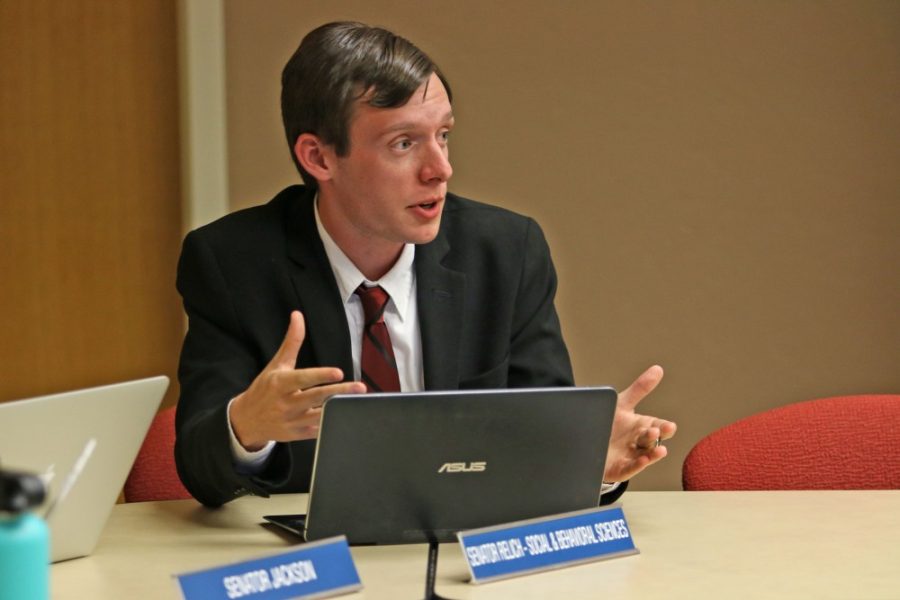Graduate and Professional Student Council representative Anthony Salas spoke to the Associated Students of the University of Arizona on Nov. 8 to inform them on what has been going on with GPSC.
Salas, who is one of two representatives for the James E. Rogers College of Law, spoke of the body being in a time of transition.
He addressed the possibility of removing seats from GPSC. The body is supposed to have 47 seats, but currently only 22 of those are filled, and the body cannot come to an agreement on how to re-proportion representatives.
“Some have suggested that we have a flat number of representatives — one or two per college,” Salas said. “But others have suggested that that leads to an unfairness in representation and some graduate institutions are just larger than others.”
However, Salas suggested the larger issue is that it is a “period of upheaval” for GPSC, citing special elections.
“Our constitution has no provision for holding special elections,” Salas said. “Technically, it doesn’t identify ASUA Supreme Court as our jurisdictional court.”
Salas also cited issues with the GPSC elections commissioner. “She’s supposed to wield a lot of discretionary authority on these issues, but has been reluctant to do so.”
Salas informed ASUA that, in order to fill seats, they will hold hearings and vote on the candidates that have applied to be in the special election, and that it’s the process the elections commissioner is most comfortable with.
“In the future, though, we were also looking at capping the amount of seats,” Salas said, “or at least the apportionment so that it is based on some other metric.”
The elections cycle for GPSC mirrors the cycle for ASUA, and campaigning is supposed to be the same. The issue is candidate participation has decreased in recent years, which Salas said is how GPSC got to this point.
Salas also mentioned that GPSC and ASUA have shared advisers and that they really cannot compel GPSC to do anything.
“This has been an issue of just several administrations kicking the can down the road,” Salas said.
Along with that, Salas noted that all the changes that need to be made include policy decisions the advisers do not feel comfortable making. Salas said this is a reason the ASUA Supreme Court does not want to get involved.
“I’ve tried to push it from our end of asking for an advisery opinion,” Salas said. “But there are certain people on GPSC that say that because we don’t have the jurisdictional court, we can’t ask for an advisery opinion.”
In the end, Salas said the overhaul is an evolving process.
Also at the meeting, ASUA Senator Alyssa Rankin announced the UA Health Science Center’s new office of diversity will be holding mental health screenings.
“If CAPS is too crazy, then you can come across Speedway,” Rankin said.
Executive Vice President David McGarey also announced that the Club Fair will be taking place Nov. 13–14. The theme for the first day will be leadership, and the theme for the second will be education.
Follow Jordan Williams on Twitter.









